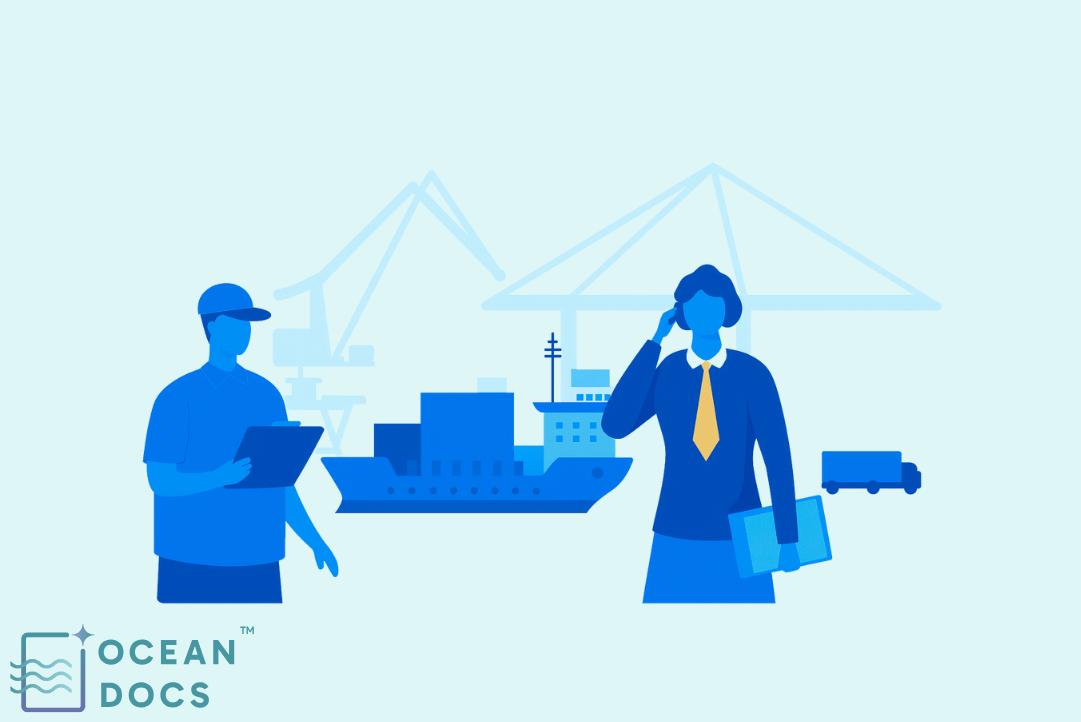
Simplifying Maritime Compliance with Smart Ship Management | OceanDocs AI
October 8, 2025 By OceanDocs AI
Running a vessel is not just about transporting cargo safely across the seas. It’s also about meeting a growing list of maritime regulations that ensure safety, sustainability, and accountability. Frameworks like MARPOL, SOLAS, and the ISM Code are essential for protecting crews, cargo, and the marine environment. But for ship operators, staying compliant can often feel like navigating an endless checklist.
Missing even a single requirement can lead to failed inspections, fines, or delays at port. That’s why adopting strong ship management practices and the right tools has become crucial. With intelligent systems like OceanDocs AI, compliance becomes not a burden, but a part of seamless, everyday operations.
Why Compliance Is Tough at Sea
Ships operate under strict international laws and frameworks such as IMO regulations, STCW training requirements, and maritime environmental compliance standards. Regular inspections like Port State Control and SIRE Vetting evaluate everything, from shipping documentation and pollution prevention measures to onboard practices and crew preparedness.
Without digital systems, much of this work depends on manual effort. Crew members often spend hours sorting ship documents, checking certificates, and updating compliance logs. This not only causes stress but also increases the risk of errors, especially during audits or port calls.
How Ship Management Simplifies Compliance
Modern ship management software and document intelligence systems are changing the way maritime compliance is handled. By digitizing and automating documentation, these tools help ship operators keep their maritime documentation current, organized, and inspection-ready.
Key benefits include:
-
Automated tracking of certificates, approvals, and inspection due dates.
-
Alerts for upcoming Port Operations and renewals.
-
Instant digital access to essential manuals like the Fire Control Plan and ISPS Code guidelines.
These features minimize manual work and support consistent shipping compliance across an entire fleet. For multi-vessel operations, digital systems also offer centralized dashboards for fleet management, ensuring each ship meets global safety and quality standards.
The Role of Safety and Training
Even the best systems can only succeed if the people using them are well-prepared. Continuous seafarer training is vital for ensuring that crews understand regulations such as COLREGs, ISGOTT, and the LSA Code.
A trained, HSEQ-aware crew can respond more confidently during inspections or emergencies, directly improving vessel safety. At the same time, a strong Safety Management System (SMS) ensures that every procedure aligns with health, safety, environment, and quality (HSEQ) standards. This structured approach not only meets compliance requirements but also builds a culture of safety onboard.
Marine Technology and AI in Shipping
Compliance today is no longer just about paperwork, it’s about data, connectivity, and predictive intelligence. New Marine Technology solutions are revolutionizing how operators manage compliance and risk.
For example, smart sensors track Ballast Water Management in real time, while AI in shipping automates monitoring and data collection. Platforms like OceanDocs AI use document intelligence to:
-
Analyze compliance records for errors or missing data.
-
Flag regulatory gaps across maritime documentation.
-
Automate updates for ship management software.
-
Support risk assessment and regulatory adherence with machine learning insights.
Some systems also integrate AI-driven geopolitical risk analysis, giving ship managers a complete, data-backed view of regional and operational threats. This combination of automation and analytics makes compliance faster, more accurate, and more proactive.
Why Compliance Is Worth the Effort
Meeting maritime compliance standards allows vessels to move freely between ports without unnecessary delays. It builds trust with Port Authorities, enhances reputation with charterers, and reduces the likelihood of detentions or penalties. Most importantly, compliance protects crew welfare, cargo integrity, and environmental safety.
When companies invest in digital tools and structured ship management processes, compliance turns from a complex challenge into a competitive advantage.
Conclusion
Maritime compliance may seem like a daunting task, but it doesn’t have to be. With the right mix of technology, training, and oversight, it becomes a natural part of safe and efficient vessel operations.
Solutions like OceanDocs AI transform complex shipping documents into structured, searchable data — helping ship operators make faster, more confident decisions. By combining automation, AI-powered document intelligence, and smart compliance tracking, OceanDocs AI makes inspections smoother and operations more reliable.
If you’d like to explore more about staying audit-ready, check out our detailed guide:
Staying Compliant at sea with OceanDocs